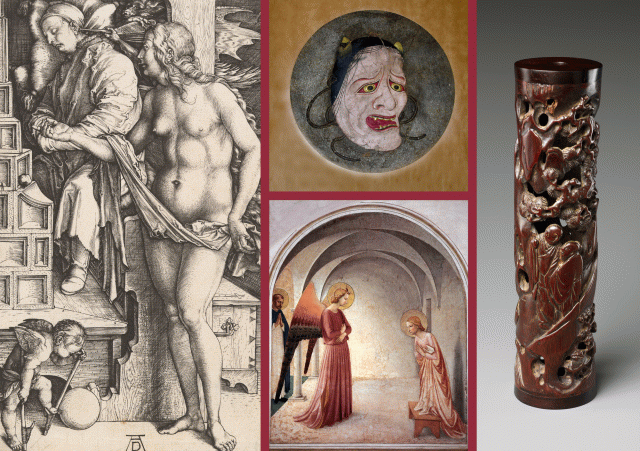Research
Practices of Imagination
Hana Gründler, Giulia Baldelli, and Jakob Moser

Michael Andreae, Aurora Frontispice (detail), in: Jacob Böhme, Des gottseeligen hocherleuchteten Jacob Böhmens Teutonici philosophi alle theosophische Wercken, Part II, Amsterdam 1682 | Hieronymus Bosch, Temptation of Saint Anthony (detail), c. 1495–1515 | Jaromír Pergler, Vladimír Boudník drawing on a wall (detail), Prague c. 1950
Against the backdrop of contemporary debates over the creative potential and embodiment of cognitive processes, imagination, a concept that according to Western traditions mediates between perception and thought, has acquired particular topicality. However, while the positive role of imagination as a productive faculty and agency of knowledge is often underlined, concomitant ethical and political problems, traceable in the longue durée of the critique of imagination, remain rather unilluminated. Thereby, this project specifically aims to examine the praxeological aspects of imagination as well as the ethico-aesthetic ‘danger’ and the political misuse of the imaginative that have often been overlooked in more historically oriented considerations of the phenomenon. On the one hand, the project thus seeks to analyse how the excesses of imagination were tamed by collective and individual practices in public or private spaces within and beyond the European tradition. In doing so, it stresses in particular how ruling societies have often instrumentalised the category of the imaginative in order to stigmatise and discipline unruly or intransigent ‘others’. On the other hand, the project also closely examines how these excesses and their perilousness had to be constantly imagined and materialised in different rituals and forms of expression, in order to establish the urgency of controlling them in the first place.
The interdisciplinary workshop Practices of Imagination (November 2021), which developed out of a reading group, addressed the reciprocal relationship between excesses and retreats of the imagination, among other subjects. The aim was to understand how the practical dimension of imagination connects spiritual, artistic, rhetorical, and political practices in the transition from the Middle Ages to the early modern period as well as in connection to Far Eastern traditions and theories and works of art of the 20th century.



